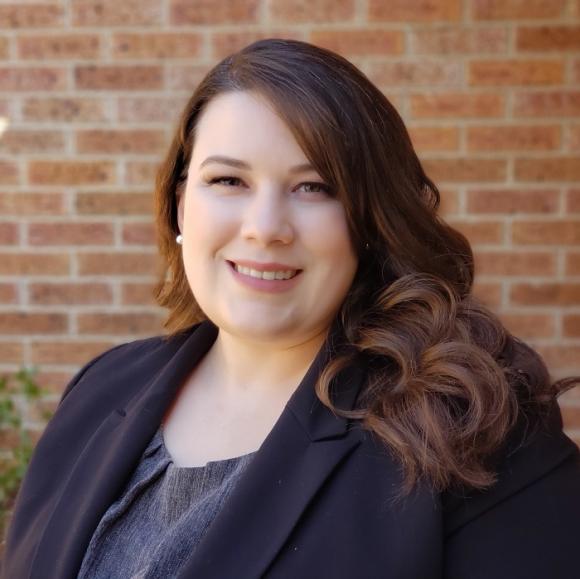
Rutgers Law graduate Ashley Maddison RLAW ’19 is finishing up a two-year graduate fellowship through Equal Justice Works, an organization that pairs law students with public interest organizations so they can become public service leaders.
Maddison works with the Camden Medical-Legal Partnership (the “MLP”), a collaboration of the Camden Coalition of Healthcare Providers and Rutgers Law School. It offers innovative, holistic, and community-based legal services to Camden residents with complex health and social needs. Her fellowship was made possible through her sponsors, Covington & Burling LLP and Merck & Co., Inc.
With roughly 40 percent of Camden’s residents living in poverty, residents have significant rates of asthma, obesity, diabetes, high blood pressure and other life-threatening diseases. Legal issues in several areas create significant barriers to improving health and overall quality of life. Part of Maddison’s work is to offer a multi-disciplinary approach to help clients with complex needs.
Maddison cites her time in the Child and Advocacy Clinic as one of her singularly most helpful experiences in law school. “The actual process of taking a case from intake to hearing (and all of the steps in between) is something that’s impossible to learn in a lecture-based course. The value of taking a clinic cannot be overstated.”
Now that she works in the MLP, which is part of the Rutgers Clinic, she said she gets wisdom and assistance from the faculty and staff, “They have all been incredibly supportive. I work in such a variety of areas, and it seems like there’s always someone who is an expert in what I am working on. I find that whenever I have a question or need help, they are more than willing to offer assistance.” Her clinic supervisor is Rutgers Law Professor Traci Overton. She along with the MLP Consulting Attorney, Jeremy Spiegel, provide case specific support and supervision.
Through her fellowship, Maddison has provided direct legal support to more than 100 people. During the pandemic, she discovered many clients needed housing support and assisted the partnership in getting a $300,000 grant to expand eviction prevention work.
“I knew I wanted to make a lasting impact at the Medical-Legal Partnership,” she said. “One of the ways to ensure the longevity of a program is by securing funding. I’m really glad that I was able to help show funders that the medical-legal partnership model is a sound investment in our community.”
She said she integrates complex care principles into her legal work, “We’re all about building authentic healing relationships and empowering clients to take control of their health. Legal health is no different. My recommendations as a lawyer aren’t going to mean anything if they don’t align with the client’s own vision and values. I try to get to know them and observe where they’re coming from, so that when we make a plan to tackle a legal issue, like outstanding warrants for nonpayment of fines, they are more likely to succeed.”
In addition to providing direct legal services, Maddison provides education to clients and staff and engages in policy advocacy, which is driven by the needs and priorities of her clients at the partnership. She keeps the care teams updated on changing laws and policies related to the pandemic, including helping clients provide their information to the IRS to receive federal stimulus checks. She also informs them about changes in housing policy. “The everchanging deadline for the end of the eviction moratorium in New Jersey has been a constant source of anxiety for our patients. As the pandemic continued, we also saw more illegal evictions or threatened illegal evictions.”
She said the biggest thing she’s learned in her fellowship, particularly during the pandemic is, “the more open you are to adapting, the better you’ll fare as a public interest lawyer.” Prior to law school, Maddison worked for several social services agencies, “There was a great need for practical, sensitive, comprehensive, accessible legal services for individuals with complex physical and psychological health needs.” That inspired her to go to law school and she chose Rutgers for its commitment to public interest.
Maddison’s two-year fellowship ends this September, but she will stay with the MLP through the end of 2021 to continue to support patients as the eviction moratorium winds down.